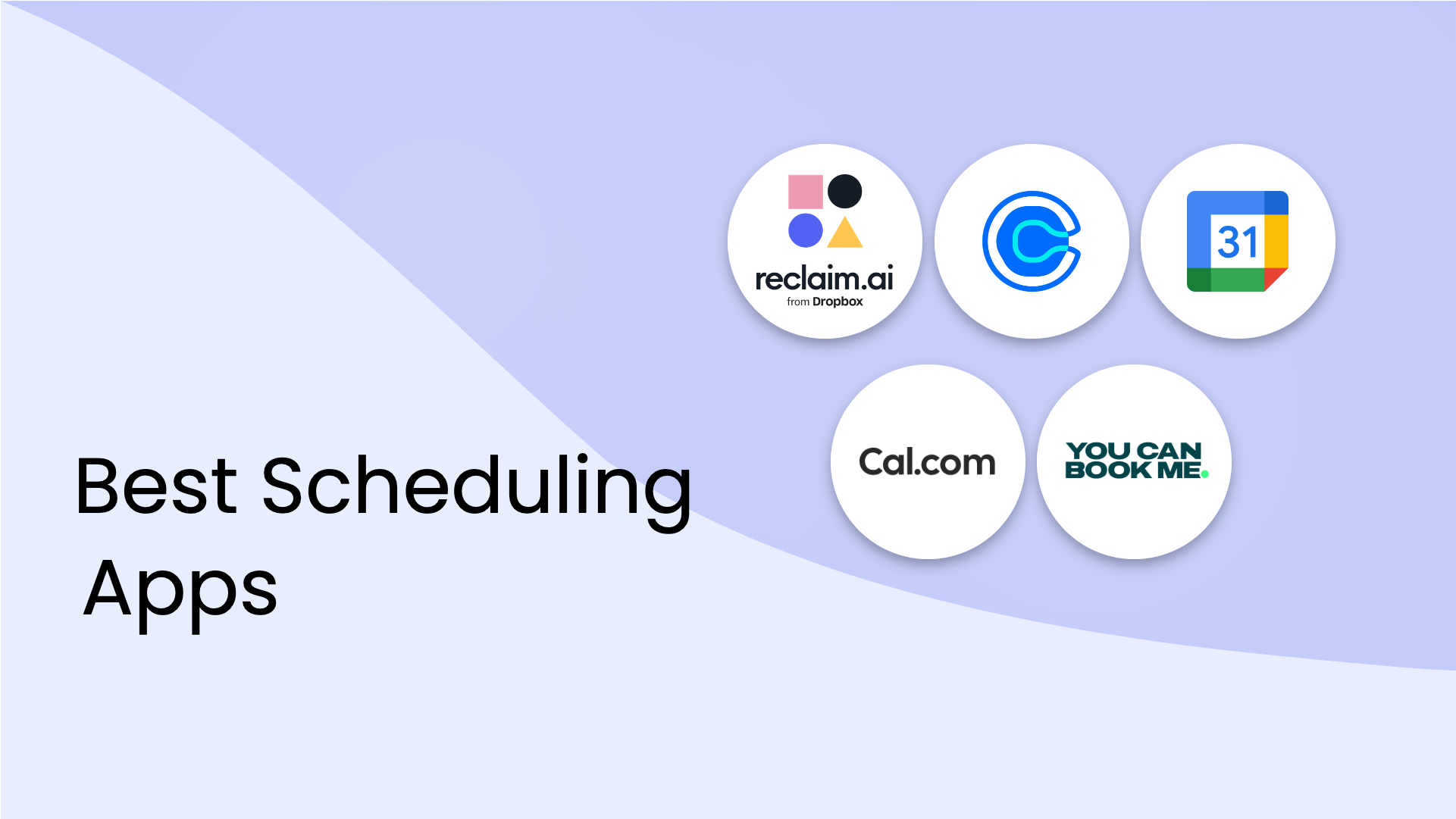Hey you! Sure, you could read this whole post -- or you could just start using Reclaim and let a computer manage your calendar. Or both. Up to you.
There has never been a better time to be a product leader working on software.
Nearly every wave is at your back: the ever-droning hum of “digital transformation”, the emergence of new tools for collaborating and producing with your colleagues, not to mention the proliferation of cultural standards that are helping software teams to move faster and more decisively. Many software managers can theoretically work from wherever, have a never-ending trove of “productivity applications” to support their work, and are quickly becoming the Most Important People in a modern enterprise.
And yet, simultaneously, something is still very wrong. While the growth in productivity and collaboration software has certainly driven a lot of advances in changing how we work, it has come with a major cost: our calendars and schedules have gotten far, far shittier. If it’s not already apparent anecdotally, there is no shortage of statistical evidence to suggest that we’re spending more time in meetings than we ever have before, that we’re wasting time in “pointless meetings” at a higher and higher rate every year, and that we’re all struggling to get time during the workweek to just get the important stuff done.
In short: we’ve invested in the ability to take time from people, but there has been very little investment in the defense of that time.
It’s for this reason that I’m writing this article, and for this reason that we founded Reclaim. But lest you should think that this is nothing but a marketing shill to get you to sign up for our software, I want to walk through the exact pain that software managers are feeling today, how it manifests itself, why it exists, and what we believe needs to be done to solve it.
There is almost an overabundance of discussion about the “time waste” space, and software has yet to come to the rescue. That’s not for lack of trying -- there are lots of companies out there trying to attack some flavor of this issue -- but rather because this is a complex, personal, and high-stakes problem space that requires a nuanced and specific approach to be truly effective.
So, with that, I’d like to introduce you to the central characters of our story: The Shuffle and The Cycle.
I’ve spent roughly the last 7 years of my career in Product Management roles, most recently as VP of Product at New Relic. In those roles, I’ve found two interesting weekly certainties:
- I’m nearly guaranteed to cancel a bunch of meetings all at once on Friday, Sunday, or (if I’m burnt out on the weekend) Monday afternoon. I do this so that I can free up time to focus on the things that I believe are strategically imperative to the company and to my role;
- At the end of the week, when I write my status update, I list out all the priorities that I wanted to make progress on that week. And, like clockwork, I will have a report that woefully states that I couldn’t make sufficient progress due to a bunch of things on my calendar interfering with my priorities.
These two activities are what we call “The Shuffle” and “The Cycle”.
The Shuffle is the process of trying to rearrange anywhere from a handful to dozens of calendar events at once -- tactfully, mind you, without pissing your peers off -- while simultaneously trying to block out time for you to get important things done. Think of sending a couple dozen emails that look like this, and then think of the compounding mental difficulty that ensues as you try to play Calendar Tetris:

The Cycle is...well...a cycle. It’s the feeling at the end of the week that you didn’t get enough done because of interruptions and time waste, that you will likely need to work the night or the weekend to make meaningful progress on those priorities, and that you sadly will end up in the same state the following week. They’re obviously interrelated in nature: The Shuffle is your attempt to gain some sanity on your week, The Cycle is a result of not getting any. So, here’s your status report in The Cycle:

Most managers that I know, inside and outside of the software space, are living these phenomena weekly. And, importantly, they’re having a really hard time with it. The Shuffle is an energy-consuming, inefficient process (for a variety of reasons, which I’ll go into below) and The Cycle is a vortex that inevitably results in burnout and sapped morale. The harsh reality is that in a world where it’s super easy to put meetings on your calendar, you need to be really good at doing The Shuffle and avoiding The Cycle. But to do it consistently and easily, we need a new way forward.
As alluded to above, we firmly believe that good managers must do The Shuffle in order to defend their time and avoid The Cycle. However, doing this process well requires a commitment to a strategy (as well as some helpful software) that is relatively absent among many of the managers I talk to. Let’s examine the major factors that contribute to making The Shuffle hard.
How do you categorize and organize the events on your calendar? Or, maybe a better question: do you categorize them at all? Often, when people think about the basis by which they audit their calendars to free up time, they’re thinking in terms of tasks, meeting types, and people. For example, a manager might say “This week I need to spend more time with Bob and Lucy” or “This week, I need to have 40% of my time free for work” or even “I need to make a calendar event for catching up on email.” These aren’t awful heuristics, but they’re simply not strategic -- they’re part and parcel of why you’re trapped in The Cycle.
Instead, try this exercise: sit down, look at your calendar for the next week, and try to mentally (or, on a spreadsheet) map your top five priorities -- the things you’re driving over the next 1-3 months, not tasks -- to the events on your calendar. How much of the stuff on there is actually, truly, aligned to those priorities? And, of the stuff that isn’t, how much of it could you shove off, reschedule, or not attend to make more time for the things that matter?

Using priorities as the primary heuristic by which you organize your time, you put yourself in a mindset where the calendar starts to actually match your strategic focus, rather than being a separate set of contracts that dictate spending time on a bunch of other random shit. Think of it as the hack to end all Google Calendar hacks.
Google Calendar and Outlook are mostly great for scheduling a single meeting, or finding times for a group to meet. It’s a pretty good notification system for reminding you that you have a meeting coming up in 10 minutes. It’s decent at attaching agendas and documents to events, or emailing people to ask them about rescheduling the meeting.
It falls apart, however, when you try to do any of these things in bulk. And, as we know, this is really at the heart of The Shuffle -- reorganizing and restructuring dozens of events, not a single one. I’ve been doing The Shuffle with GCal for several years, and I often end up pulling out a pen and paper to take notes about which meetings I’ve asked to reschedule, which times work for which people, and where I need to block out additional time. It takes 2-4 hours for a busy manager to do this right. Which, again, is time away from your Sunday afternoon and ultimately an activity that saps way too much of your precious energy.
Moreover, calendars don’t have sufficient metadata to capture meaningful context about which priorities or initiatives map to your events, which means that as you do The Shuffle, it’s really hard to know how much time you’re budgeting for the week to focus on priorities that matter. This specific set of problems requires a workflow and user experience that simply doesn’t exist (yet), as Keith Rabois lamented several years ago in a talk at Stanford.
I’m going to take a bit of a shot at the Deep Work camp here with this hot take, but my firm belief here is that we’ve let ourselves fall victim to an overly binary mindset when it comes to “deep work” vs. “shallow work”, or “focus time” vs. “unfocused time”. That is, we’ve equated focus time with time that we spend on our own, and unfocused time as time that we spend with others.
Part of what makes being a manager great is that the job revolves around bringing together divergent personalities and opinions to solve hard problems. You aren’t the person with all the answers, and you’re not the person who will solve every problem alone. In other words, your “deep work” time needs to include meetings -- but the right meetings, with the right people, focused on the right problems at the right time.
Per our previous exercise, try this: look at your calendar and think about how many events you have that enable you to focus -- with or without others -- on your priorities. Do you have the right balance of people and activities to support your work? Don’t merely think about how much individual focus time you have (where, let’s be honest, you’ll probably spend most of it catching up on Slack or email anyways) but rather how much overall time you’re dedicating to focus on your priorities with the people that will help you accomplish them.
As we mentioned earlier, this problem is a personal and high-stakes one. What does that mean? Well, think about the times you’ve rescheduled 1:1s with your direct reports at the last minute. Didn’t that feel bad? Didn’t you feel like a shitty manager? Or, think about when you asked an SVP or C-level to move a meeting so that you could spend time working on something else. Stressful, right?
People are bad at managing their calendars effectively, in part, because they are worried about the cultural, social, or political implications that it will have for their career or place in the organization. If you blow up your calendar tactlessly, people will eventually stop inviting you to their meetings and your relationships will suffer.
However, there are ways to reclaim your time that are not only graceful, but that actually inspire feelings of positivity and solidarity from your peers and superiors. It’s a fairly simple methodology: give people some good advance notice, offer up alternative times that ideally align with their calendars as well, and -- most importantly -- cite the priority that you’re spending time on instead of spending time with them. 99.9% of the time, the responses you get are “No problem, way to stay focused, let’s find another time to connect.”
Again, though, like the bulk editing problem of The Shuffle, this is an extremely time-consuming and energy-sapping activity to be done across many calendar events. Software can and should codify this etiquette, and this is part of the solution that Reclaim is built to offer.
Think about the “productivity” tools that you use and love every day. Did you start using them and loving them because your organization told you to? Or did you learn you loved them by discovering them and using them on your own?
Again, this space is a very personal problem. People manage their time differently, have different ideas of what it means to have a great work week, and have different ideas of social etiquette for defending their time. For that reason, we believe that the software people use to enhance how they work needs to built for them, to create value primarily for them, and not be overly focused on the “top-down” benefits to the enterprise.
What we’ve seen is that most of the players in this space are too tilted toward creating value for organizations and forget to solve for personal pain. That’s why we're building Reclaim: we want to fix your shitty calendar, not just convince your CEO that we can make you more productive.
We’ve talked through a lot of the dominant challenges in front of managers who want to manage their time more effectively, and offered up some suggestions for how you can start reclaiming time using simple strategies that work. We’d love to hear more about how you’re managing these challenges today, and what’s working and what’s not.
Want to make your calendar better? Get started with Reclaim now.










.png)




















